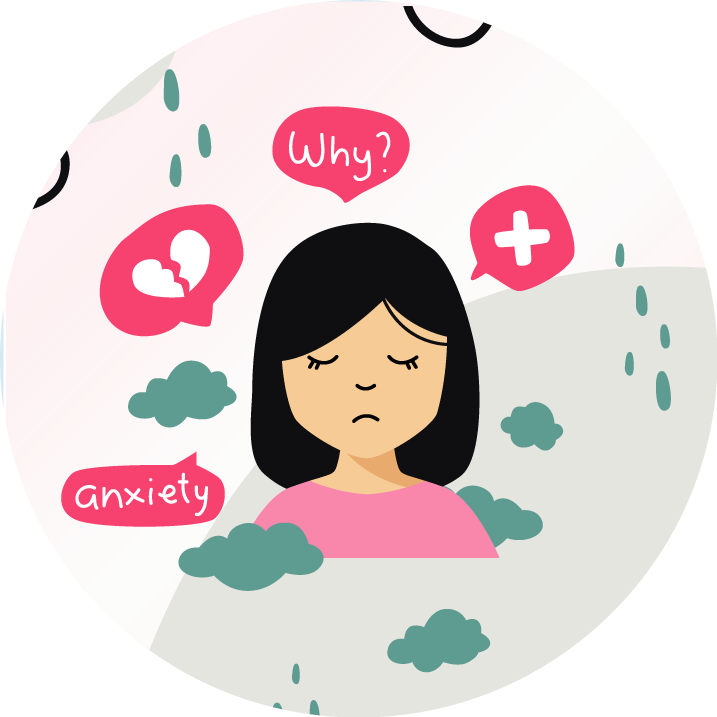Keeping Your Marriage Strong While Caring for Your Parents

Keeping Your Marriage Strong While Caring for Your Parents
July 24 2025 TalktoAngel 0 comments 297 Views
Caring for aging parents is a deeply meaningful act—but it brings profound challenges, especially when balancing the demands of a marriage. As many in the “sandwich generation” know, trying to meet the emotional, financial, and practical needs of parents while maintaining a loving, intimate relationship with a spouse can be overwhelming. This post explores the strains caregiving places on marriages—and presents strategies to safeguard your relationship while providing compassionate support to your parents.
Emotional & Relational Impact on Marriage
Caring for aging parents can place a significant emotional and logistical burden on a marriage, often introducing strain, resentment, and deep fatigue into the relationship dynamics. While caregiving is an act of love and duty, its demands can create an imbalance that disrupts the emotional equilibrium between partners.
- Time and energy drain: When one partner assumes the primary responsibility of caregiving, the emotional and physical workload often becomes disproportionately heavy. This shift can leave the caregiving partner feeling overwhelmed and unsupported, while the other may feel sidelined or disconnected. The resulting imbalance can lead to recurring friction, emotional distance, and chronic exhaustion for both individuals.
- Loss of intimacy: As caregiving consumes time, emotional energy, and attention, the couple’s relationship often becomes a secondary priority. This shift can cause a noticeable decline in emotional closeness, physical affection, sexual intimacy, and shared quality time. Over time, this disconnection may erode the couple’s bond and sense of partnership.
- Conflict over priorities: Tension can also arise when one partner perceives that the other is devoting excessive time, energy, or emotional investment to their aging parent. Feelings of neglect, jealousy, or resentment may surface, leading to arguments or ongoing emotional discontent. Disagreements about how to divide time between caregiving, personal needs, and the relationship can become a persistent source of conflict.
- Financial stress: Providing care for an elderly parent often involves additional financial responsibilities, including medical expenses, home modifications, in-home care, or assisted living arrangements. These unexpected or sustained costs can strain the household budget, sparking frequent arguments and reducing overall marital satisfaction. Financial anxiety can also exacerbate existing tensions within the relationship.
- Caregiver burnout: The partner who serves as the primary caregiver is particularly vulnerable to burnout. Prolonged stress may lead to anxiety, depression, sleep disturbances, and even physical health issues such as weakened immunity or chronic fatigue. These symptoms can not only diminish the caregiver’s well-being but also negatively affect their ability to engage in the relationship, creating a ripple effect of emotional withdrawal and reduced connection within the marriage.
How Marital Satisfaction Suffers
Studies using family systems and role theory suggest that high levels of parental care can erode marital satisfaction.
- When one spouse gives significantly more help to aging parents than the other, the imbalance often results in lower marital quality
- Systemic stress—combining caregiving demands with work and parenting—can escalate marital conflict, withdrawal, depression, and even health decline among caregivers?
Yet research also shows that with mutual support and open communication, caregiving doesn’t have to weaken marriage; it can even deepen bonds?
Strategies to Keep Your Marriage Strong
Here are evidence-based approaches to protect your marriage while serving aging parents:
1. Communicate Openly & Regularly
- Schedule check-ins to express feelings, concerns, and emotions without judgment?
- Practice active listening—both verbal and non-verbal—to validate emotions and sustain connection?.
2. Set Healthy Boundaries & Share Caregiving Tasks
- Agree on caregiving schedules and clearly define roles to reduce resentment?.
- Delegate responsibilities—or leverage home care services—to lighten the load
3. Prioritise Couple Time and Intimacy
- Schedule regular “date nights” or quiet couple moments, even if brief?
- Reconnect through simple, shared hobbies and affectionate gestures?
4. Utilise Respite and External Support
Access respite care to reduce stress and maintain family stability?
Seek help from extended family, friends, or faith-based communities—accept that caregiving doesn’t have to be a solo job?.
5. Plan Financially and Legally Together
- Collaborate on caregiving budget, health directives, power of attorney, and long-term care insurance?
6. Nurture Self-Care & Mental Health
- Caregiver burnout isn’t selfish—it’s a health risk?
- Maintain self-care: exercise, hobbies, social connection, and proper sleep?
- Join caregiver support groups to find empathy and resource-sharing?
7. Don’t Hesitate to Seek Professional Help
- Couple counselling can prevent resentment from festering and improve communication?.
- Caregiving individuals may also benefit from individual therapy to manage burnout, anxiety, or grief?.
Turning Challenges into Connection
With intentional effort and partnership, caregiving can fortify your marriage.
- Shared challenges, when faced as teammates, can deepen respect and love.
- A shared sense of purpose—caring for loved ones—can strengthen marital bonds and mutual appreciation?.
Couples who care for each other as well as their parents often emerge with a renewed sense of unity and emotional resilience.
Conclusion
Caring for aging parents while sustaining a heartfelt marriage isn’t easy. The emotional, financial, and physical demands stretch couples thin, threatening intimacy, communication, and mutual support. But with commitment, shared planning, self-care, and open communication, it's possible to surmount these challenges.
By setting boundaries, sharing responsibilities, and preserving couple time, you can maintain a strong partnership—and even grow closer—during this demanding life stage. The path isn’t simple, but the rewards—emotional togetherness, shared compassion, and deepened empathy—can last a lifetime.
Contributed By: Dr. (Prof.) R. K. Suri, Clinical Psychologist and Life Coach, &. Ms.Sheetal Chauhan, Counselling Psychologist.
References
- Adamson, D. M., Feinauer, L. L., Lund, D. A., & Caserta, M. S. (1992). Burden of caregiving for older adults. The Gerontologist, 32(5), 644–650.
- Bowen, M. (1978). Family therapy in clinical practice. Jason Aronson.
- Chasin, M., Grunebaum, J., & Herzig, M. (1990). Marital conflict and parental care: Forming alliances. Family Relations, 39(4), 417–424.
- Conger, R. D., et al. (2010). Economic pressure and marital quality: A longitudinal study. Journal of Marriage and Family, 72(5), 1054–1074.
- https://www.talktoangel.com/blog/balancing-between-parenting-and-marriage
- https://www.talktoangel.com/blog/coping-with-parenting-challenges
Leave a Comment:
Related Post
Categories
Related Quote

“Anxiety is a thin stream of fear trickling through the mind. If encouraged, it cuts a channel into which all other thoughts are drained.” - Arthur Somers Roche

"It is okay to have depression, it is okay to have anxiety and it is okay to have an adjustment disorder. We need to improve the conversation. We all have mental health in the same way we all have physical health." - Prince Harry

“You say you’re ‘depressed’ – all I see is resilience. You are allowed to feel messed up and inside out. It doesn’t mean you’re defective – it just means you’re human.” - David Mitchell, Cloud Atlas

“Between stimulus and response, there is a space. In that space is our power to choose our response. In our response lies our growth and our freedom.” - Viktor Frankl

“My anxiety doesn't come from thinking about the future but from wanting to control it.” - Hugh Prather
Best Therapists In India




























SHARE